Singing in the rain: Scottish Opera returns in the time of Covid
- Published
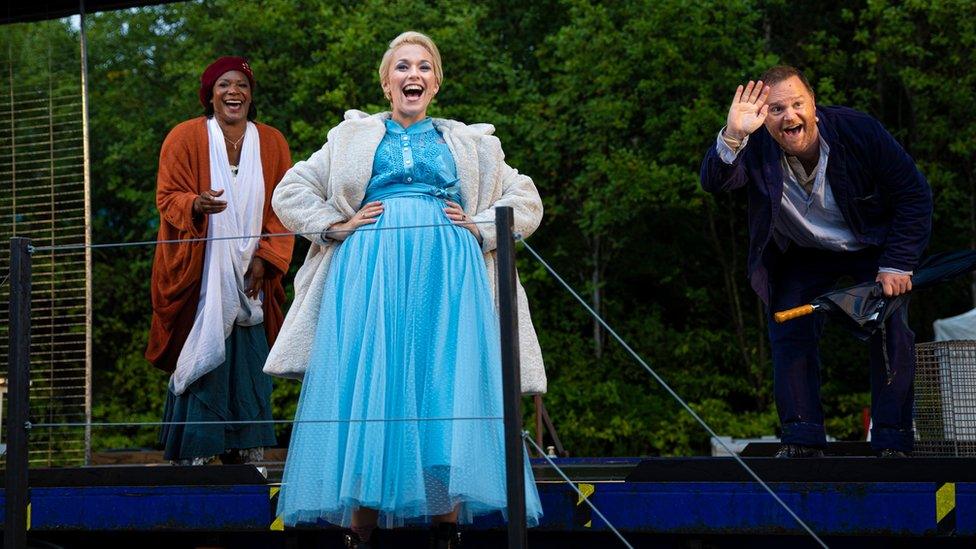
La Boheme is being performed in a car park
Scottish Opera is beginning live performances again with a string of pop-up shows across the country - with musicians behind screens and singers staying three metres apart.
Who could have imagined a year ago that the most anticipated live performance of 2020 would involve sitting in the car park of Scottish Opera's production centre as the rain poured down on a temporary canopy, and singers emerged from trailers with remnants of costumes and props from previous shows.
The musicians of the reduced orchestra were at least warm, tucked behind Perspex screens in the paint store.
Welcome to music in the time of Covid.
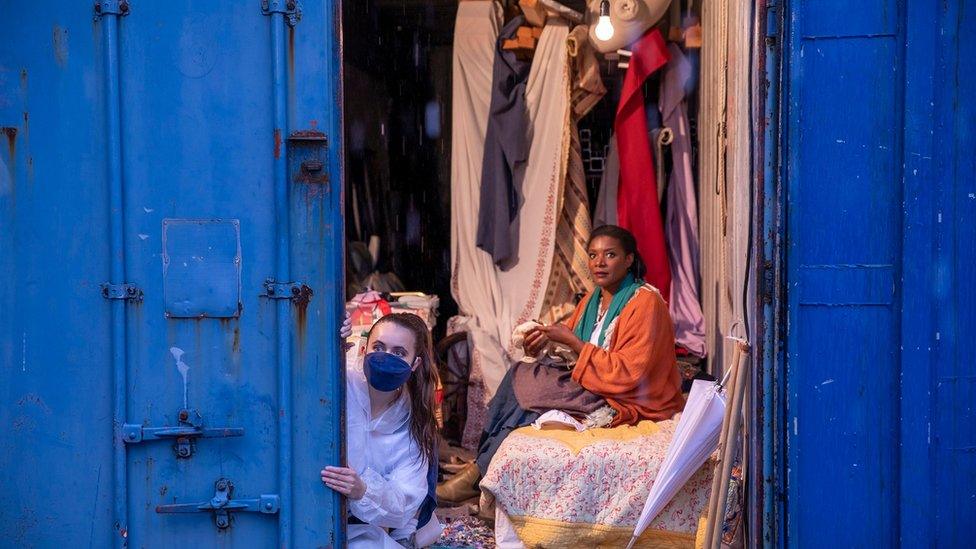
This is an important milestone for Scottish Opera, the first national performing arts company to stage a live show for a real-life audience. Like everyone else, they've been making virtual work online, but this is a different thing entirely.
There is two metre social distancing for everyone - but it increases to three metres when performers are singing. That makes it hard for Rudolfo and Mimi in La Boheme to even get close enough to declare their love.
Your tiny hand is frozen, he sings in one of the opera's most famous arias - but he can't possibly get close enough to tell.
And anyway, everyone's hands are frozen after hanging around the car park for a couple of hours.
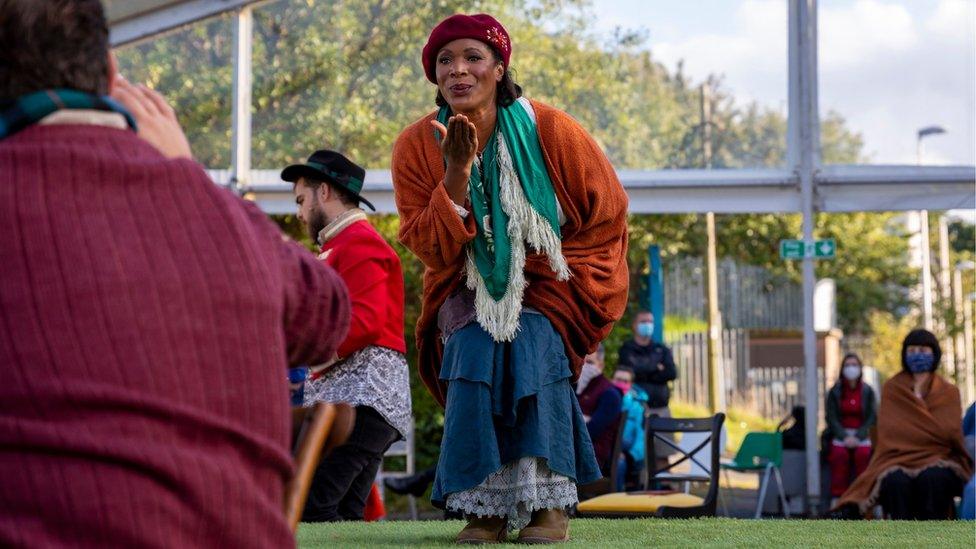
But instead of fighting against the pandemic and its restrictions, the team behind this new production embrace it - at least as much as they can.
What might seem like a post-apocalyptic world where out-of-work artists, desperate to perform, scavenge for materials is actually strangely poignant, given the entire company have been in lockdown until now and many of the staff are freelance.
In a plush theatre, it's hard to share the despair of Puccini's struggling artists, or their fear of the sickness and poverty around them. But suddenly, it takes on a whole new meaning.
Each of the national arts companies have their battles persuading taxpayers and successive governments that they have relevance and can reach a wide audience.
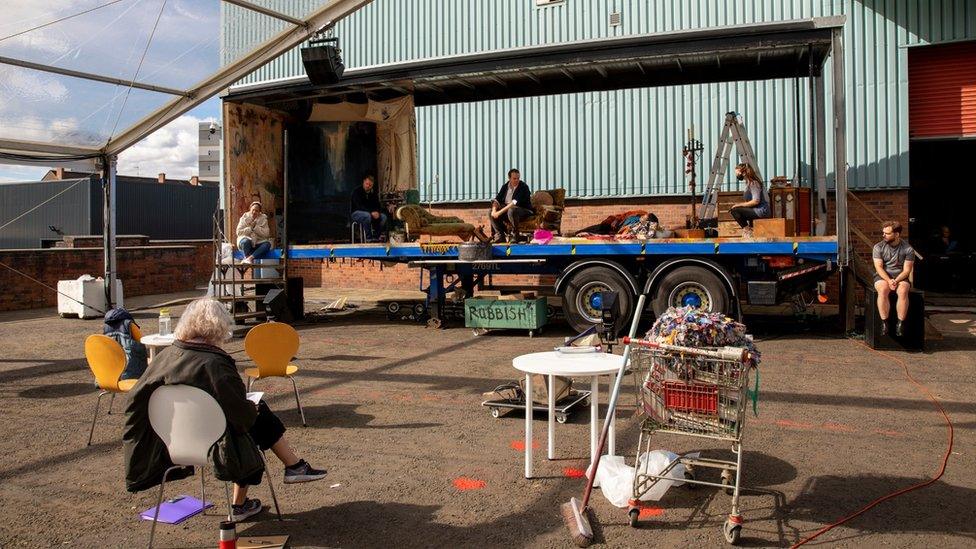
Opera is often deemed elitist and expensive. For years, the company has attempted to broaden its appeal, to reach the young, the very young (with opera for babies) and those who would sooner be in a sports stadium than a theatre.
But Covid has set all that back. It will be months, maybe years, before any of the companies can reach the sort of numbers they did before.
The six performances of La Boheme in Glasgow will reach just over 100 people per night. But they're eager, even if it means sitting in a car park in the rain.
Tickets for the five initial shows were quickly snapped up, so much so that extra seating and an extra performance had to be added.
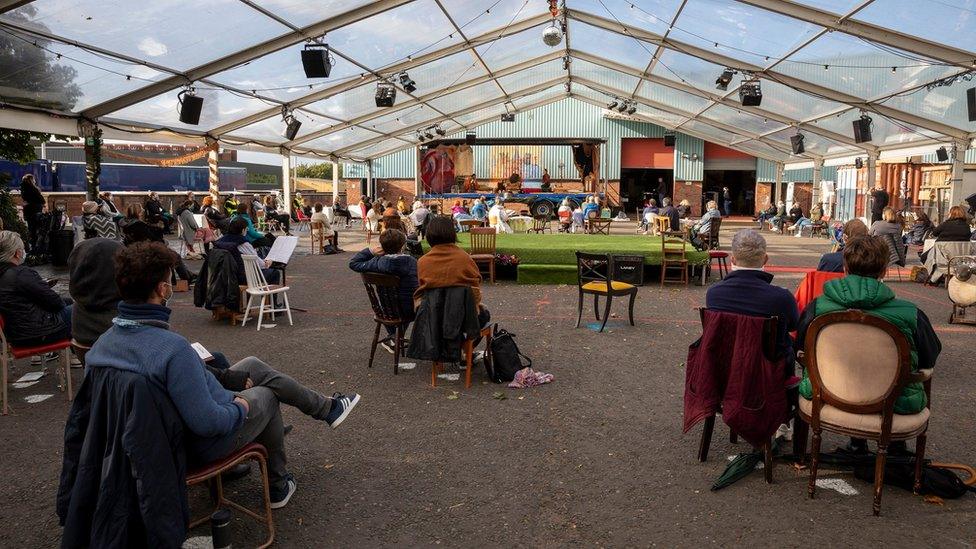
The performance will attract audiences of about 100 people
There's been a similar response to smaller pop up shows around the country, starting in Greenock on Friday, and it's not just audiences who have that pent-up enthusiasm for live performance. There isn't space or budget for a chorus, but regular singers are back as stewards for these shows.
The nearest model for this is not any of the grand productions staged at the Edinburgh International Festival, or in the Theatre Royal, but another tented production which was staged in Paisley two years ago.
Pagliacci was a massive outdoor production where members of the public sang alongside professional singers in a bold promenade production which was more Glastonbury than Glyndebourne, and showed how wide-reaching opera could be, and how much fun.
How much fun singing in the rain is going to be is anyone's guess... but after five months of lockdown, any singing is welcome.
All pictures by James Glossop

BACK TO SCHOOL: Can a school insist on a Covid test?
LOCKDOWN EASING: What changes next - and when?
